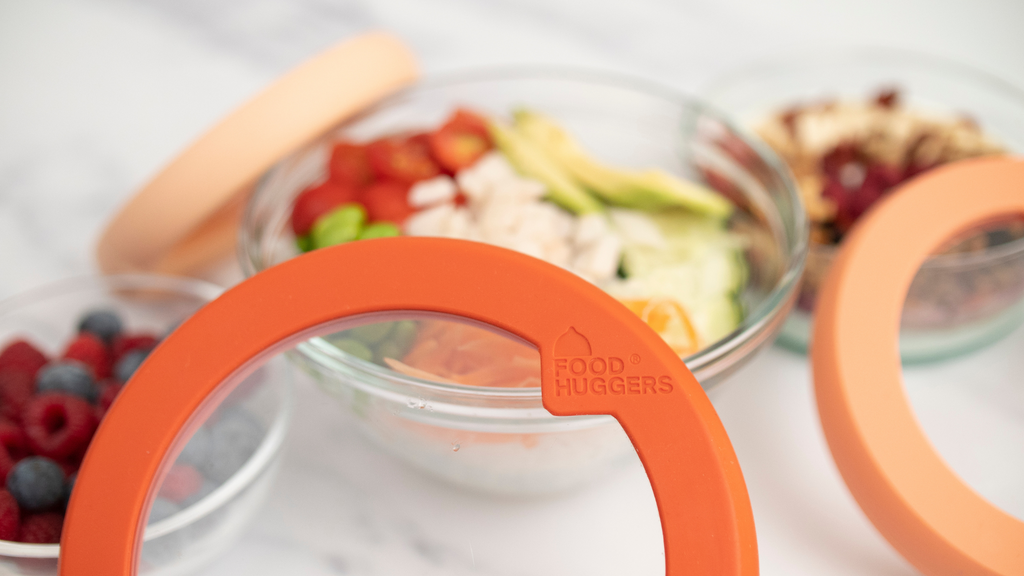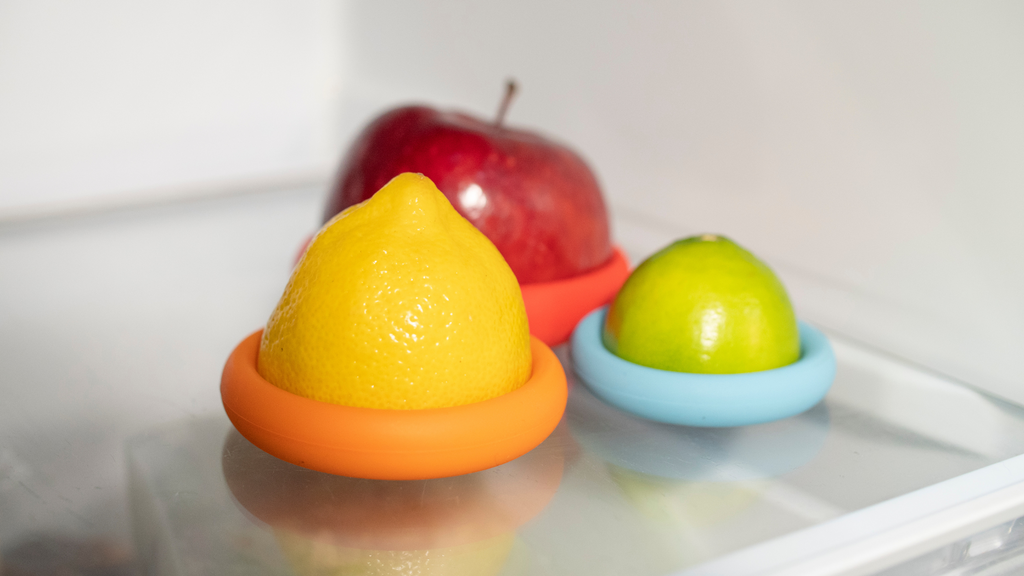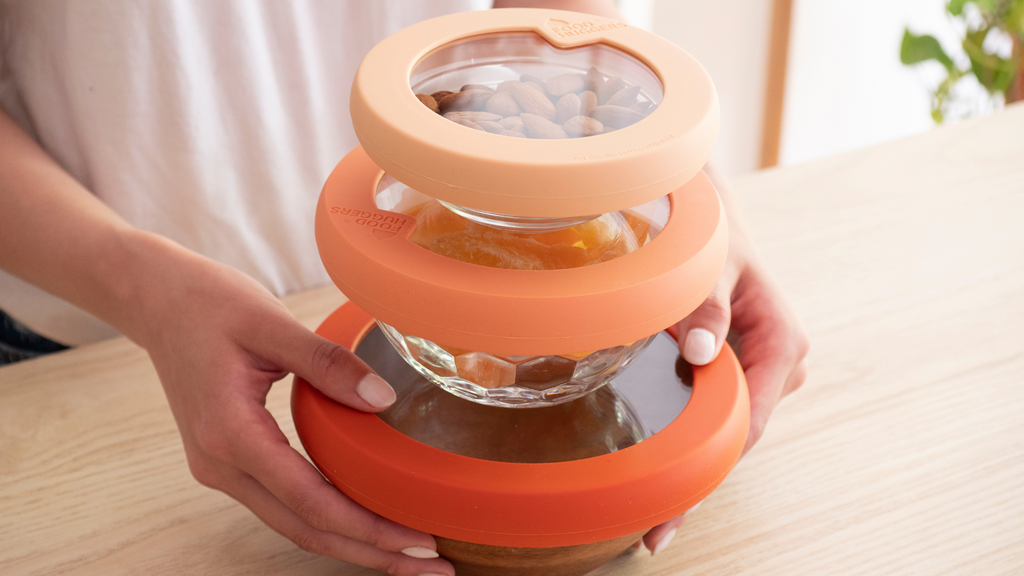Living solo can be a wonderful and empowering experience, having freedom and a space to call your own. However, when it comes to groceries, it can also present some unique challenges. Managing food and minimizing food waste can be a little bit more difficult when shopping and cooking for one, but it's also an opportunity to exercise your creativity and practical skills in the kitchen.
From smart shopping choices and the art of transforming leftovers into delicious new meals, to sharing the joy of food with friends and neighbors, in this blog post, we'll delve into everyday solutions to make the most of your groceries.
1. Shop with Intention (and a list)
When living alone, it's very easy to fall into the trap of buying more groceries than you need. To prevent food waste and save money, we suggest shopping with intention. Plan your meals for the week, make a shopping list, and stick to it. Be realistic about what you can eat, and try to resist those impulse purchases that might tempt you at the store—as delicious they might look! Consider any upcoming social plans that may cause you to opt for dining out on a night you would have otherwise stayed in. By recognizing these moments, you can curate your grocery list to suit your week's unique needs, reducing the risk of overbuying and food waste.
2. Buy Frozen and Canned Goods
It’s always practical to have some frozen and canned goods on hand. These items have a longer shelf life and can be used in smaller portions without the fear of them spoiling. Stock your freezer with frozen fruits and veggies and your pantry with canned goods and sauces. Food Huggers, in addition to preserving fresh produce, can also be incredibly handy when it comes to covering canned goods. Both frozen and canned goods are convenient ingredients for quick, small sized meals.
3. Meal Prep in Small Batches
Cooking for one can be easier to manage when you try meal prep techniques in smaller batches. Cook your favorite dishes, divide them into individual servings, and then freeze what you can't eat within a few days. This way, you always have homemade, ready-to-heat meals at your disposal. This is really one of our fave ways to cook no matter how many people live at home.

4. Use Your Freezer Wisely
Your freezer is your secret weapon in the battle against food waste. When you buy in larger quantities or simply can’t finish everything you have in your fridge, freeze items you won't use immediately. For instance, portion out meat, bread, or leftovers for the week and store what’s left in the freezer. Properly sealed and labeled items can be kept for several months without a significant loss of quality.
5. Keep Produce Halves Fresh
One of the most common challenges when living solo is dealing with fruits and veggies that you can't use up entirely in one meal. Half an avocado, a portion of an onion, or the remainder of a lemon can easily dry out in the fridge and end up being tossed. Food Huggers are a great tool to keep these halves fresh for your next meal. They won’t only reduce food waste, but they’ll also save you money in wasted food!

6. Master the Art of Leftovers
Leftovers are your best friend when you're living alone. They can save you time and prevent food waste. To make the most of leftovers, consider repurposing last night's dinner into a creative lunch the next day. For example, roasted vegetables can be turned into a frittata, and that simple roasted chicken can become chicken salad, a sandwich or a hearty soup.
7. Plan Meals Carefully
Meal planning is not just a time-saving strategy; it's a fantastic way to reduce food waste. Create a meal plan for the week, incorporating ingredients that overlap in multiple recipes. This approach ensures that you use up what you have without feeling rushed to consume specific items before they expire.
8. Know Your Fridge's Zones
Your fridge is not uniform in temperature, and understanding its zones can help you keep food fresh longer. The door is typically the warmest area, while the back of the fridge is the coldest. Store dairy and meats in the colder regions and less perishable items in the door. This simple act can extend the life of your food.
9. Share with Friends and Neighbors
One of the joys of living alone is having the freedom to cook as you please, but sometimes that can lead to too much food. To prevent waste, consider sharing your cooking endeavors with friends or neighbors. You can even take turns preparing meals and dropping off food for each other. It's an excellent way to reduce the load, build community, and ensure that perfectly good food doesn't go to waste.
10. Revive Wilting Produce
It happens to the best of us—sometimes fruits and veggies start to wilt before we get to use them. Don't rush to toss them out. Instead, try reviving them. A simple trick is to soak limp greens and carrots in ice water for a few minutes. This can often bring them back to life, making them crisp and fresh again.
11. Use Stackable and Transparent Containers
Invest in stackable, transparent food storage solutions made from safe materials like glass or silicone. These containers not only make organization a breeze but also reduce the need for single-use plastic bags. Their transparent design allows you to easily identify your stored items, preventing forgotten food from going to waste. We recommend our Reusable Bowl Lids that turn the bowls you already have at home into reusable food storage containers.

12. Store Food Like a Pro
One of the key strategies for reducing food waste is understanding the nuances of food storage. Proper storage can significantly extend the shelf life of your groceries. Different types of foods have specific requirements, such as humidity levels, temperature, and packaging. For instance, some fruits and vegetables should be stored separately to prevent premature ripening, while dairy and meats need to be in the coldest part of the fridge. Take the time to learn these details and follow best practices, and you'll find that your food stays fresher for much longer, allowing you to enjoy it on your own terms.
These tips will help you make the most of your groceries when living alone, ensuring that you enjoy delicious meals without any guilt or waste. Food Huggers are an excellent addition to your kitchen arsenal, allowing you to extend the freshness of your produce halves and make the most out of your shopping.
Liked This? Share It on Socials!
As a sustainability-focused, women-owned, and B Corp certified business, Food Huggers have been providing zero waste kitchen tools and sustainable solutions since 2013, helping you create a greener tomorrow.
If you found value in this article, we'd be thrilled if you shared it on your social media platforms.
Do you have more fridge hacks for living alone or want to share your thoughts? We'd love to hear from you. Share your experiences and let's inspire each other!
Connect with us on Facebook, Instagram, or YouTube, where we regularly share practical tips for embracing a zero waste kitchen and living a sustainable lifestyle.

